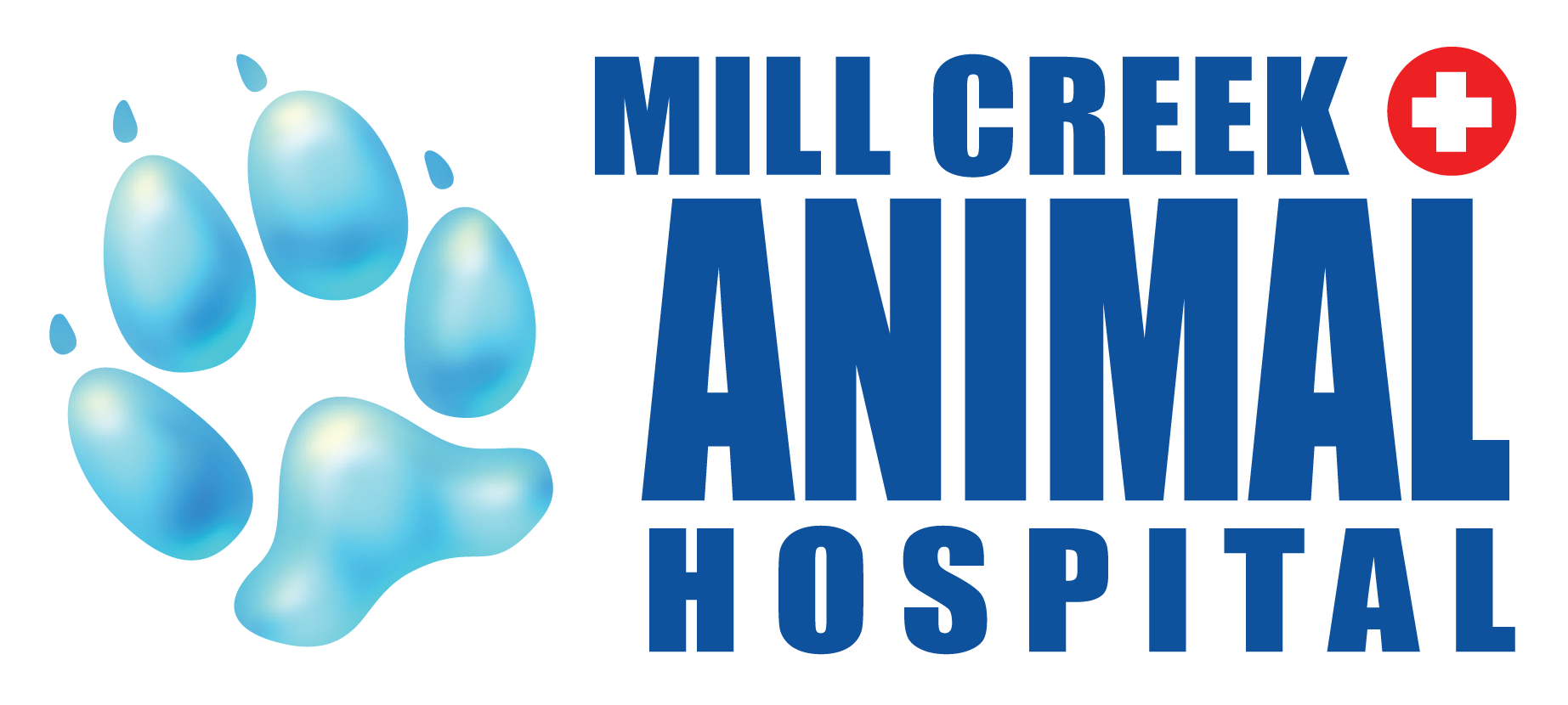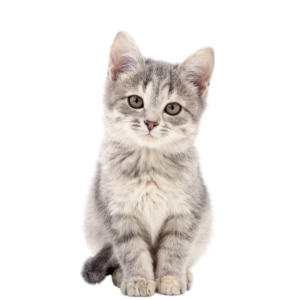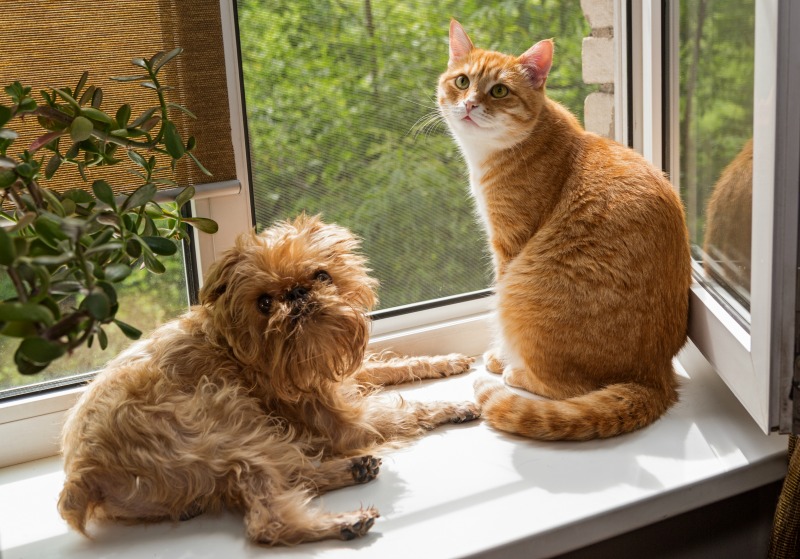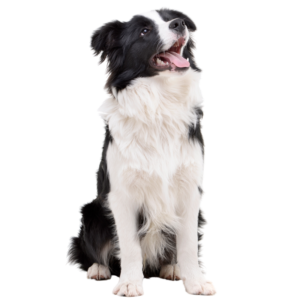Dogs wag their tails only when happy, Cats purr only when happy.
False! Dogs do commonly wag their tails when they are happy, but they also wag when they are stressed and/or anxious. Learn your dog’s signs of stress so you can tell the difference, and that will help keep your pup and other pups/people safe and happy.
Cats purr when they are happy, they purr when they are stressed, they purr to their newborns, they purr when they are sick. Newborn kittens can purr when they are only a day or two old. Some say it is to connect with their mom and let them know they are alright. The point is, there are many reasons cats purr. Don’t always assume it is because they are happy! Although, most of the time it is!
A warm nose means a sick dog.
False! A warm nose is just that, a warm nose. A dog’s normal body temperature is warmer than a human’s so just because it seems warm to you doesn’t necessarily mean your dog is running a fever. If your dog has nasal discharge, is lethargic, has swelling or just generally seems off, contact your veterinarian and get a physical exam done. If the nose is just warm and dry, it wouldn’t be something to be overly concerned about.
Dogs heal themselves by licking their wounds.
True and False. Small amounts of licking can clean the wound but excessive licking can slow down the healing process and can invite infection. Excessive licking can also cause more damage by causing issues like lick granulomas and hot spots. It can also become a behaviour that is difficult to stop.
Eating grass means your dog is sick.
False. There are no proven theories on why dogs eat grass. Although some dogs will eat grass when they feel the need to make themselves sick, more often than not they eat it just because they like it. If your dog only wants to feast on grass, talk to your veterinarian about it, but if it is only occasional, it isn’t something to be overly concerned about. Something else to keep in mind, if your pet does like to eat grass you should definitely be more diligent about deworming as they can collect little friends like roundworms and hookworms by feasting on some yummy grass.
Indoor pets don’t need to be dewormed.
False. Tell that to the fly that flew in the house or the mouse that made the mistake of entering the abode, or the grass in the yard your dog just ate!
Indoor pets don’t need to go to the vet or get vaccines.
False. Pets can pick up diseases like distemper, upper-respiratory infections and more. These are passed through the air or brought in on your shoes or an animal (ex: a bat with rabies) that flew in your house. Regular checkups can help find any issues early, and vaccines greatly decrease the risk of your pet picking up anything unwanted and potentially quite deadly.
Spaying or neutering will change their personality.
False. Some unwanted behaviours may be reduced, like mounting, roaming, fighting or spraying, but their lovely personalities aren’t known to be altered just because of their lack of sex hormones.
Milk is a good treat for cats and dogs.
Cats and dogs don’t have the significant amount of lactase (the enzyme that breaks down lactose) needed to appropriately break down lactose in dairy so consuming milk could lead to diarrhea, vomiting and other issues. Don’t believe all the cartoons that tell you milk is great for your cat and dog!
Breeds on the banned list are always aggressive, or all large dogs are dangerous.
False! Any breed of dog can be aggressive without proper socialization and training. The meaner-looking the breed does not mean they will be aggressive and the cuter looking the breed does not mean they will be friendly.
Make sure to properly investigate anything you read online and trust your veterinarian’s advice. The internet is a great source of information but remember, anyone can post anything on there and make it sound good. Your veterinarian went to school for many years so that they could learn all they know and share that knowledge with you to help make your pet safe and happy.
Written by: Jill Thiessen, Office Manager



